Sustainable development and good management of tourism are a critical revenue generator for the Bangweulu and its surrounding communities. Well-run tourism provides an increase in jobs and help create a conservation-led economy, increasing the value of maintaining the wetlands as a protected area long into the future. Communities receive a 15% share of all commercial income generated in Bangweulu.
The reintroduction of cheetah and the new shoebill rehabilitation facility have been notable drawcards for visitors to Bangweulu, along with the unique life of a wetland. Shoebill Island Camp, an iconic camp in a scenic location with views of the wetlands and wilderness, has become a sought-after tourism offering.
Sustainable Resource Use
Under Zambian law, sustainable hunting of black lechwe is allowed in Bangweulu Wetlands. To ensure this is done in order to deliver benefits to communities while effectively managing lechwe populations, the Bangweulu Wetlands Management Board uses sound scientific and management techniques to oversee the initiative. Funds generated from lechwe hunting are injected back into the region, providing for communities and helping to support overall conservation efforts as well as community development for the area. Overall the benefits of lechwe off-takes are multi-pronged as not only has the population of black lechwe increased under this management approach, but an affordable protein source is provided to communities while community income generating opportunities are supported through the production and sale of leather products obtained from the harvesting.
To read African Parks statement on hunting, click here
